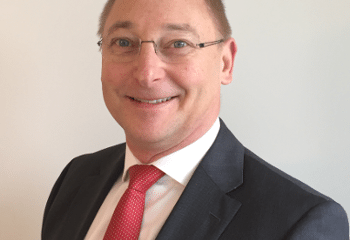

Economy
How you pay for the City: episode one review
The investment industry is a maze of complexity. Somewhere in the process – which is governed to a large degree by computers and algorithms – are companies, people and money. But how does this drawn out activity actually impact returns?
In a recent programme for BBC Radio 4, David Grossman attempted to answer this very question. It was the first of a four-part series titled How you pay for the City, and looked at the implications of a complex process by which investors can actually use their money to have an effect on the real economy, while seeing their funds grow.
Grossman was quick to tell the audience how the money being thrown around the markets is actually real money, created in the real economy by hard-working individuals.
The first issue is the complexity of the investment management industry. Investors often can’t simply head straight for the market to pick and choose investments for themselves; instead they use fund managers. These intermediaries are only the first in a long and complex line down which funds are passed, consisting of banks, traders and finally the companies doing the groundwork.
Gina Miller, an ex-employee in mainstream investment, highlights a case where a traditional individual savings account (ISA) sees a net profit of £547, when in actual fact, the investment returned a gross profit of £1,115. So where are all the profits being swallowed up?
Miller left the industry after feeling uncomfortable about all the hidden charges that are tacked onto the bill for investors. She has since set up her own investment company, which she says is “clear on fees” and aims for transparency.
The achievement of transparency can be somewhat difficult in an industry that is so complex. The most rational minded among us would be troubled by the processes and there are calls from within the industry itself to improve practices.
Daniel Godfrey, CEO of the Investment Management Association (IMA), acknowledges the issue of complexity and says the IMA is “working with its investors […] to develop a proposal for an inclusive single pounds and pence figure of historic costs, looking back over a year to tell an investor exactly how a fund has performed.”
Measures such as this would possibly have some indication on just how much is being taken out of investors profits, increasing transparency but also making the whole system easier to understand.
Then of course, is the somewhat misleading marketing strategies deployed by fund management companies, often claiming the great success of their services for consecutive years.
“If you toss a coin one million times”, says Dr Brian Bell of Oxford University, “it will come up heads ten consecutive times. That does not mean it’s a brilliant coin – it means there’s randomness in the process […] you’ll always get some funds that do well for consecutive years.”
The great deception is that fund managers do not sing about the funds that have failed and subsequently closed down. Either way, the financial burden is with the investor; it’s their pension fund.
Then there’s the short-term versus long-term debate: which is better?
As Godfrey points out, economic wellbeing is dependent on the success of the companies being invested in. The economy props up government spending on education, health and the welfare state through taxation. A quick buck can therefore not only be detrimental to the economic success of companies, but also has a direct impact on the quality of services provided by the government.
Short-term investments are what drive up the frequency of the fees hiding around the corner from investors. If a fund manager creates movement, whether this is for better or for worse, they want rewarding for it. That reward comes in the form of a fee, and the investor is left with the tab.
To conclude, the system needs to become much more open and transparent. The reason investors often see measly returns is that sometimes, there are simply too many fingers in the one pie. As Grossman says, “Forget the middle man, we’re talking about a whole rugby team now.”
The team is, unfortunately, motivated by money before anything else, increasing the volume of transactions, and ultimately making it even more complex. But it’s investors that are paying the price.
Listen to episode one here.
Further reading:
A dark magic: looking at the impact of high frequency trading on financial markets
We need investment to return to its patient evolutionary path
There is a disconnect between investment and the real world
Transparency, simplicity and honesty is urgently needed in investment






























